Hannah Brown Isn't Settling Anymore
After a year of hunting for a husband on national television, the 25-year-old former pageant queen is still a bachelorette. And, frankly, that’s just fine with her.
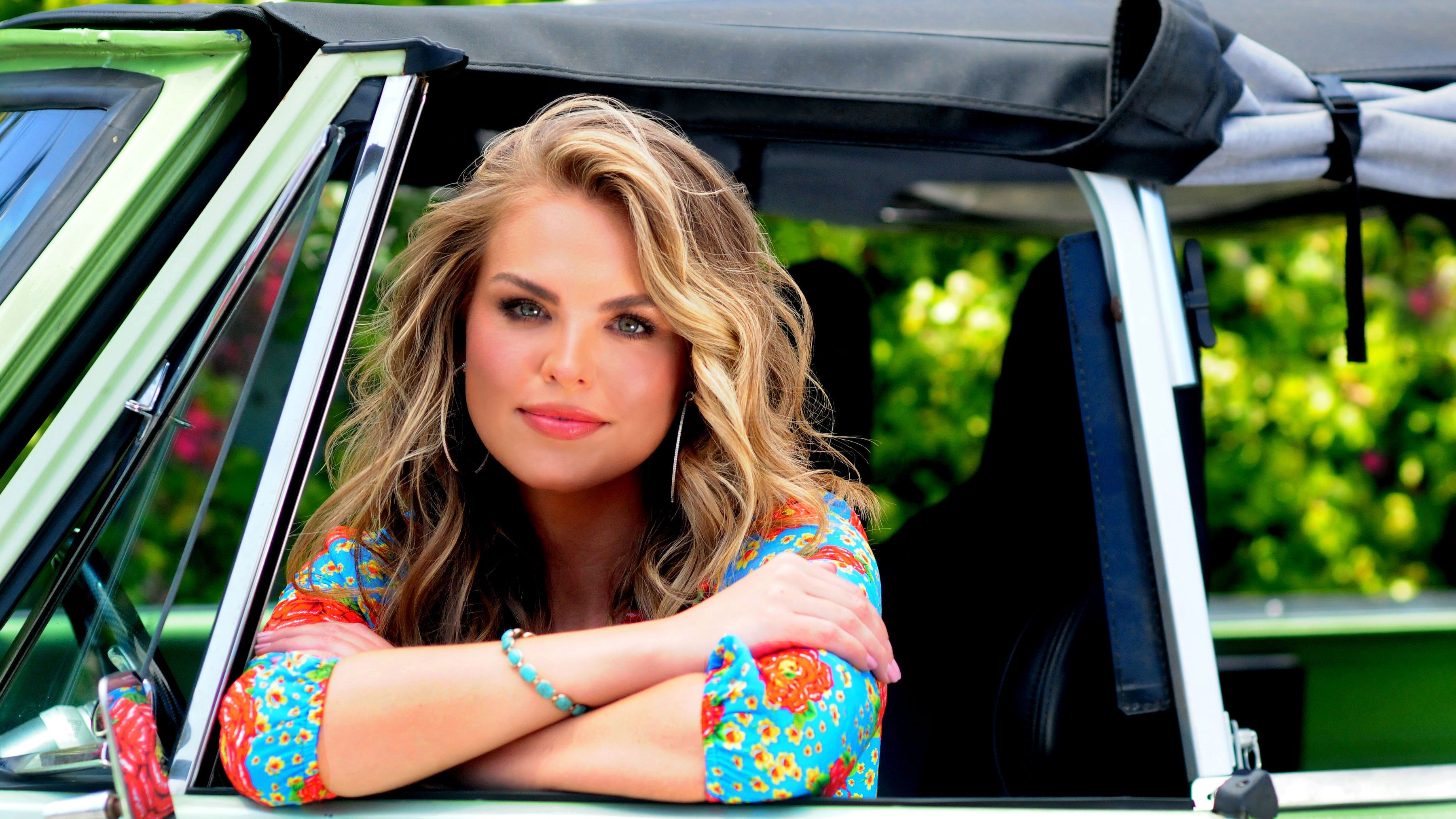
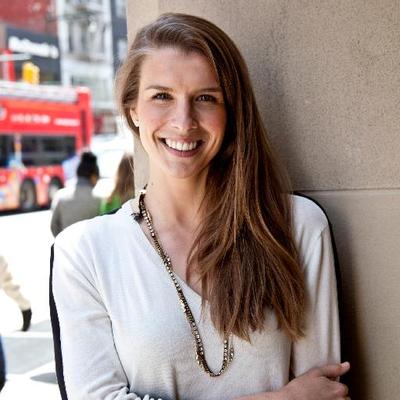
Emblazoned across the back of Hannah Brown’s phone case are three words: “Not Today Satan.” The catchphrase serves as a cheeky reminder of a serious sentiment: that all the crap that Brown has dealt with in her past—all the judgment and the lies and the underestimation—she’s done with it. Done accepting less than she deserves. Done putting a man before herself.
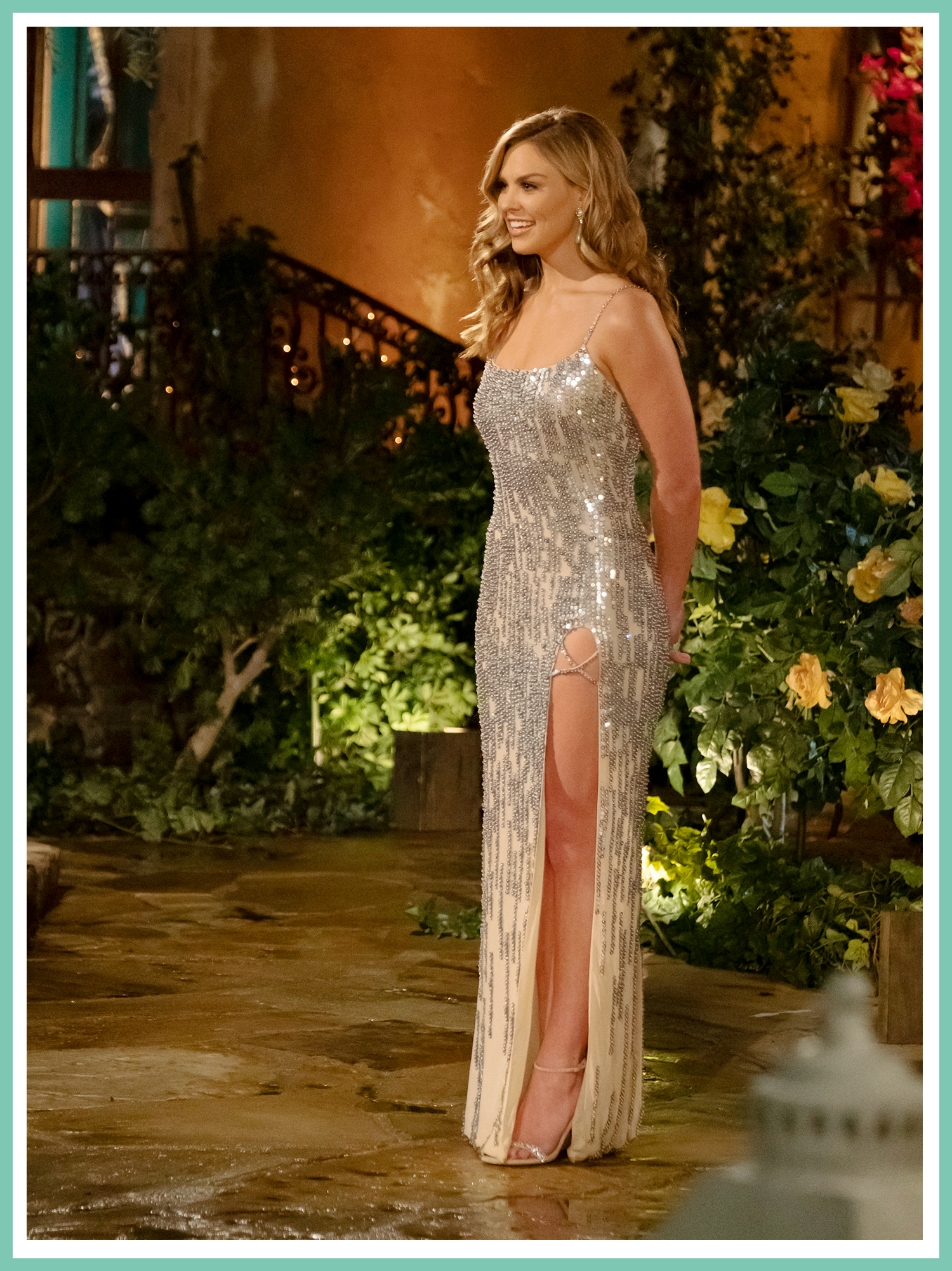
Brown on the first night of filming for The Bachelorette.
“I wasn’t planning the whole time to be, like, this empowered woman,” says Brown, the 15th star of ABC’s The Bachelorette. “I am. And I do feel that way. But the thing that I told myself I was going to be was real.”
Just over one year ago, Brown was stuck in Tuscaloosa, Alabama, recently heartbroken. All her friends were in Birmingham and either married or engaged. Brown thought that by that point she would have been too. So she went on The Bachelor and, later, The Bachelorette with the singular focus of finding her spouse. It was truly, as she says, the desire of her heart.
At first, Brown’s season appeared like any other. She traveled the world, going on gimmicky group dates and steamy one-on-ones, winnowing her field to four final suitors: Luke Parker, the Jesus-loving master manipulator; Peter Weber, the pilot forever associated with windmills; Tyler Cameron, the supermodel-dating model; and Jed Wyatt, the dishonest aspiring musician. It’s just that when finding a spouse didn’t turn out as expected, Brown blew it all up.
“That’s why I fell in love with Hannah,” says Kari Nixon, Ph.D., an assistant professor of English literature at Whitworth University in Spokane, Washington, who has included Brown’s season of The Bachelorette on her syllabus this semester. Nixon explains that many writers of the Victorian era took their traditional marriage plots and subverted them. So did Brown. “She went into the traditional narrative and said, ‘Yes, I’ll be this type of girl that’s in this type of show,’ and then at a certain point she was like, ‘No, I’m going to break all these tropes. And the fact of its salaciousness will get this message out, and change the series, and break the system open.’”
“I didn’t aspire to be on The Bachelor. I didn’t watch the show. I thought it was for losers truly.” Brown is telling me this over pistachio guacamole and fish tacos at the Rooftop by JG in L.A. She’s just moved here. To Sherman Oaks, to be exact (so near to her friend and fellow Bachelor castmate Demi Burnett that they each have a key to the other’s place). But Brown’s not quite sure where she fits in. She’s struggling. Although she might have had trouble getting acclimated to post-show life even if she had returned to Alabama.
Brown is a feminist icon now, a mantle bestowed upon her by no less than former Barack Obama aide Alyssa Mastromonaco. She has 2.4 million Instagram followers, and people like me want to write stories about her. “Getting Instagram followers when I got back home was freaking me out,” says Brown. “Everybody gains followers, but it was like, Okay, I’m about to have a life with another human, and that’s what I’m going to be focusing on. And that didn’t happen. So now I have all these random humans who are really interested in me and what I have to offer. And I’m like, I actually have a lot to offer, don’t I?”
Stay In The Know
Get exclusive access to fashion and beauty trends, hot-off-the-press celebrity news, and more.
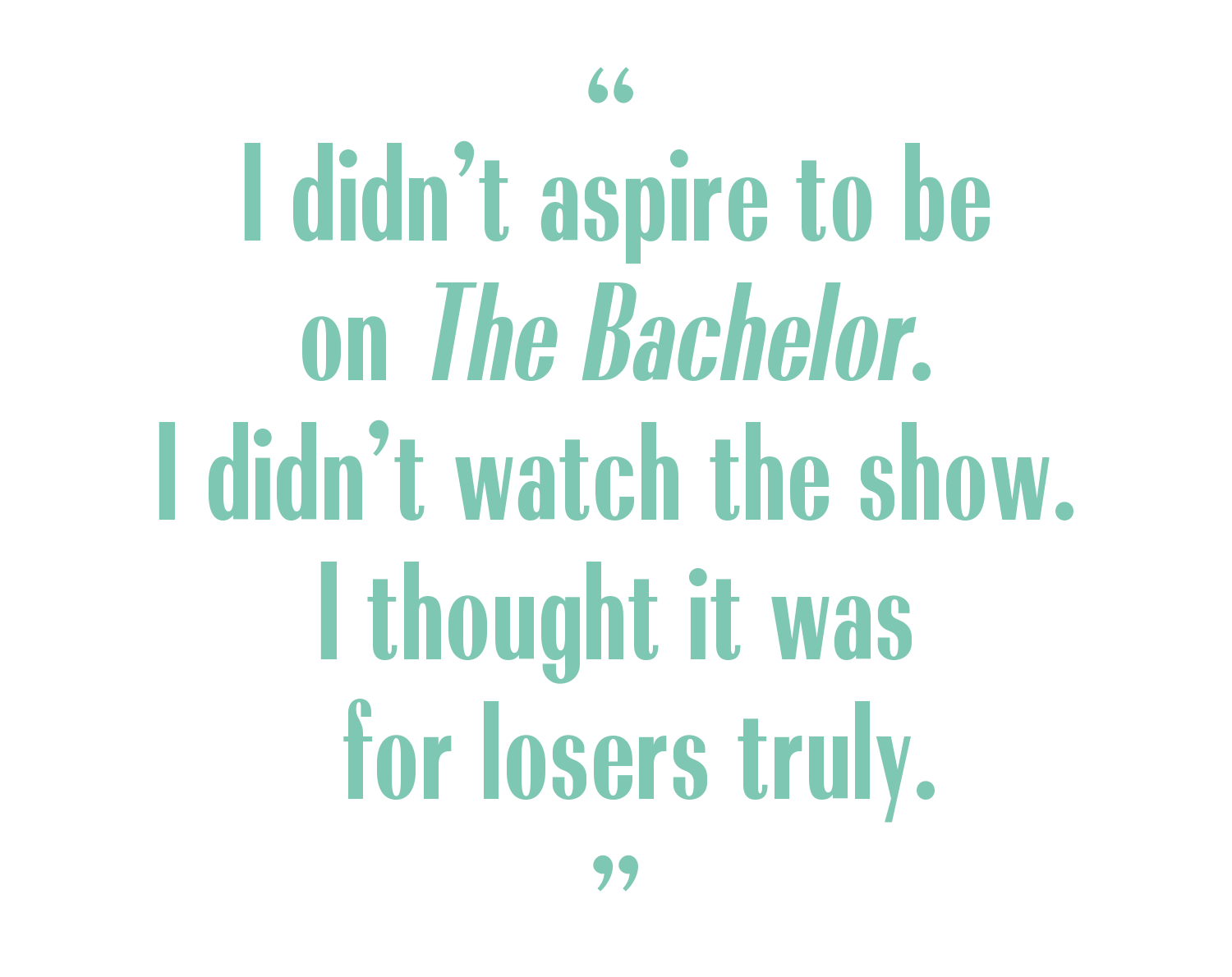
Brown’s superpower may be her crossover appeal, as they say in the biz—her ability to, in this intensely divided time in our country, bridge the gap. Socially conservative Southern belles and coastal pussy-hat-wearers can all see themselves in Hannah, a multidimensional woman who has been through it: heartbreak, judgment, double standards, body-image issues, depression. Who is still going through it. Spending the day with Brown is like spending the day with 25-year-old me. So many times I want to reach out and hug her—me—and say it will all turn out okay. But in the next instant, I see that Brown doesn’t need that at all. She wears vulnerability on one sleeve and fierce determination on the other.
“I say this not in a bad way, but this”—Brown is referring to the ability to focus on herself and her many newfound opportunities—“is kind of my consolation prize. But it’s the best consolation prize I could have.”
The first opportunity Brown is pursuing is a stint on Dancing With the Stars. It’s a fairly common Bachelor alum next step (see: Melissa Rycroft, Nick Viall, Jake Pavelka, et al.). But for Brown it’s more than another 15 minutes of fame. “It’s not just about winning the Mirrorball,” though Brown assures me she wants that first-place trophy. “I want to be in this competition as long as possible because I know I need this growth.”
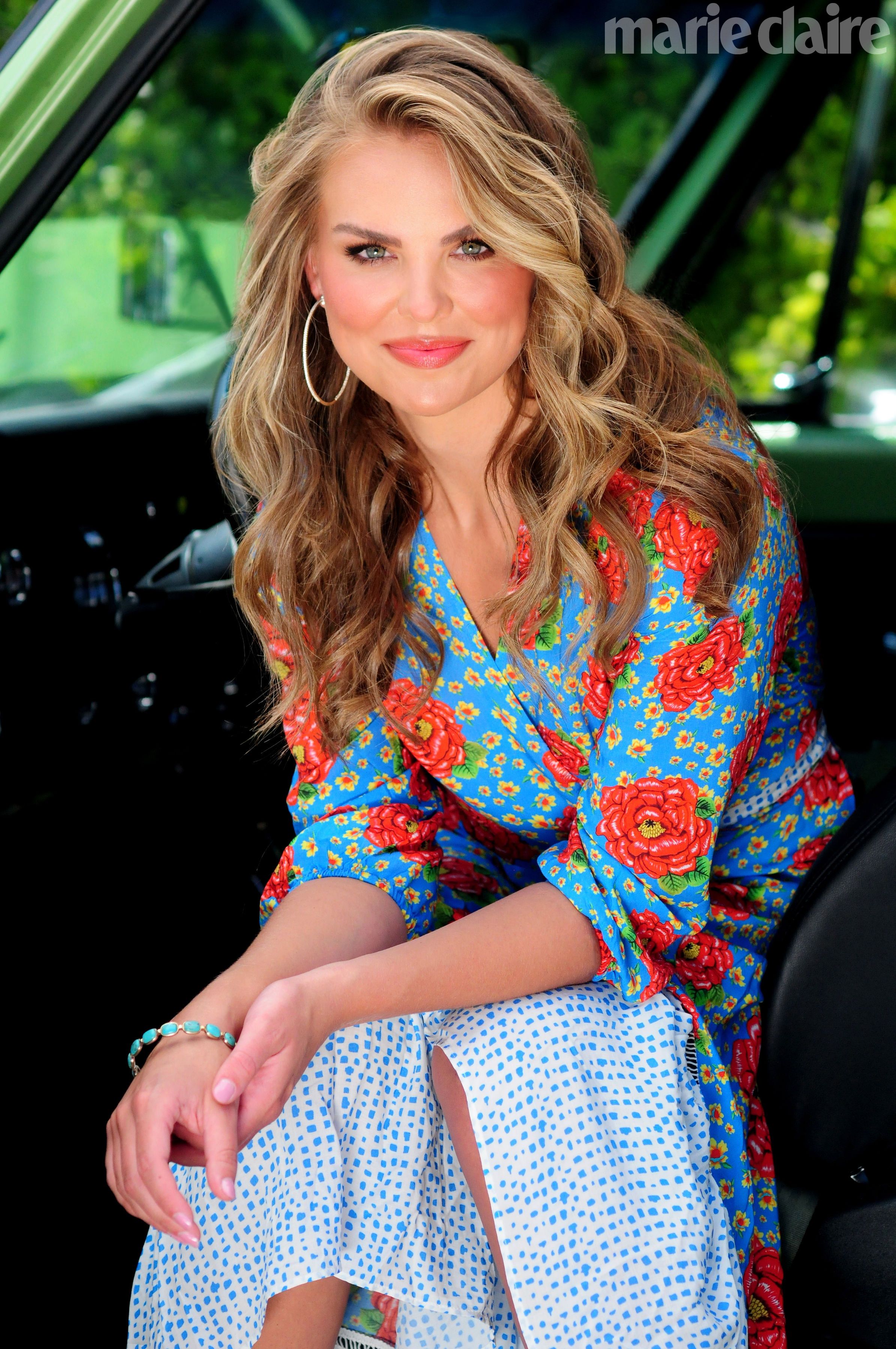
Dress by Farm Rio x Anthropologie, earrings by Adornmonde (worn throughout)
I meet Brown during the second week of rehearsals for the show, five days before she’ll perform a cha-cha to Whitney Houston’s “I Wanna Dance With Somebody” (a song the producers chose) on the season premiere. So far DWTS has been “a struggle but fun.” “I’ve had two for real emotional breakdowns,” Brown tells me. “Just going from what I just went through…and it hasn’t really stopped. Like, what was the ending to my season? I don’t know.” Since filming wrapped in May, Brown has broken off her engagement (following weeks of tabloid reports about Wyatt’s womanizing), has broached rekindling things with Cameron only to watch his romance with Gigi Hadid blossom across the internet, and is now being subjected to a flurry of excitement around Peter Weber’s star turn as the Bachelor.
(On the last point: “I think everybody deserves to have the opportunity to find somebody, and so I’m supportive of that,” she says, frowning; she was Team Mike Johnson, a fan favorite (Air Force vet, megawatt smile) eliminated during week seven, “because it’d be easier.”)
The events of the last four months are only a fraction of what she’s working through. Brown has long been her “own worst critic.” It started during her pageant days. Brown got into pageants as an adolescent on a whim. She tagged along with her mom’s best friend’s daughter to a pageant…and won. So she kept competing. “When I say I always get in my way, like, I always do. When I first started [pageants], I was really successful because I had no idea what I was doing,” she says. But then she started training. She was told to dye her hair blond and work out more. She got in her head. And then she started losing. In the Miss Alabama America pageant, she didn’t make top 15. “That killed my self-confidence.”
With DWTS, Brown is having a bit of déjà vu. “There have been times in rehearsal when my head will not even allow my foot to go because I’m scared of messing up,” she says. “It’s that fear of failure.” During rehearsal, it’s obvious that Brown strives for perfection. She flops on the floor after a mistake; a second later, she’s back up, eager to give it a go again. She makes her partner, Alan Bersten, go through a particular turn sequence at least a dozen times. Bersten, an affable 25-year-old with curly dark hair and a scruffy beard, joined DWTS in season 20. Now in season 28, the dancer and choreographer testifies that Brown is his favorite partner: “She works the hardest.”
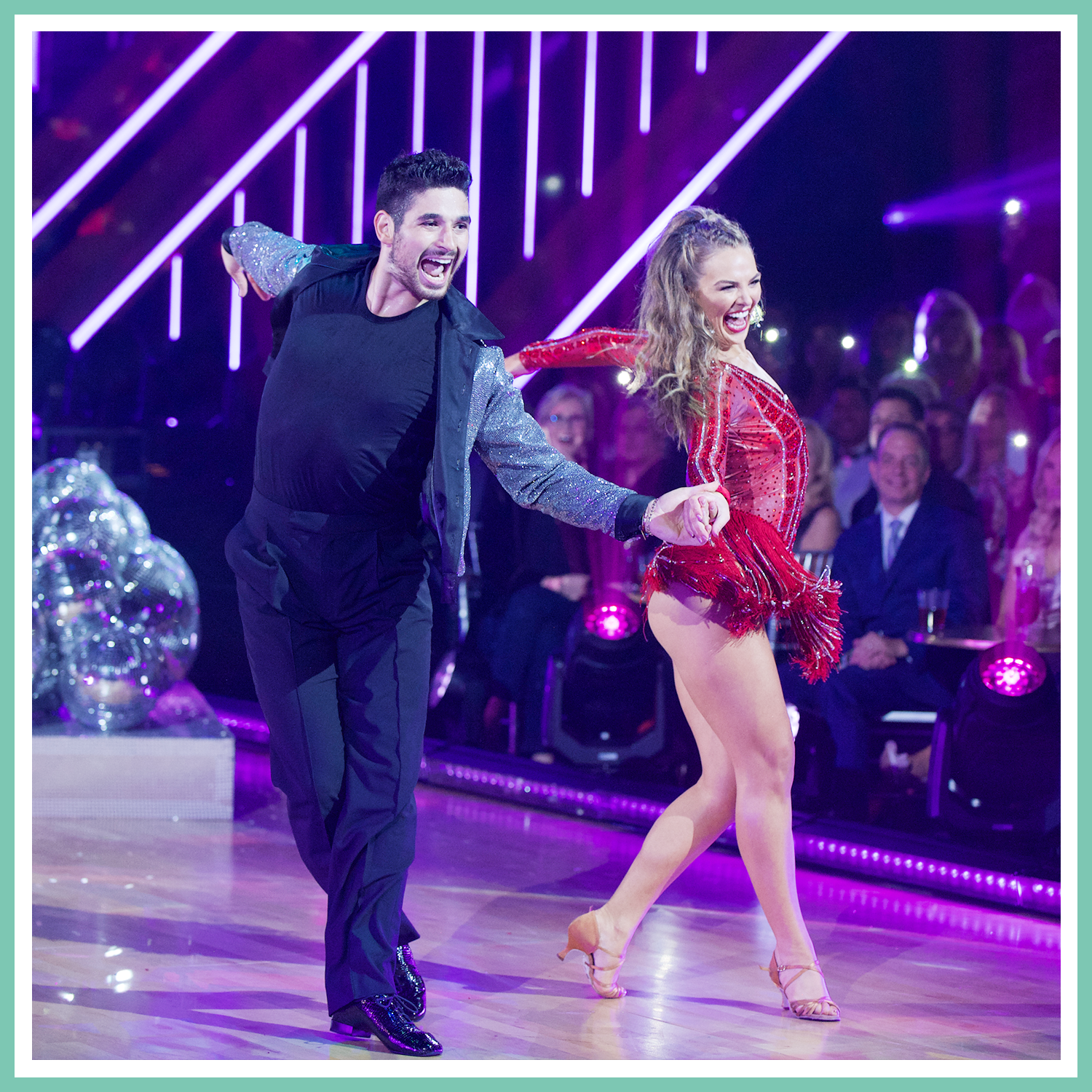
Brown performing with Bersten on the premiere of Dancing With the Stars.
Toward the end of rehearsal, she changes from Latin shoes to ballroom shoes and pulls a cropped, sleeveless sweatshirt and maxi skirt on over her heathered sports bra and Lululemon leggings. Brown and Bersten go through the Viennese waltz she’ll dance in episode two. In another wink at Brown’s history, the song it’s set to is “Lover” off Taylor Swift’s latest album. Though there are hiccups (one arm motion at the end causes a lot of exasperation), it looks impressive already.
I ask Brown if she’s too hard on herself. “Oh, I am 1,000 percent too hard on myself.” She hates that it’s so easy to overthink things and beat herself up, “but it’s been 24 years of that.” Is the competition, the continued spotlight, putting her in too much of a negative space? Perhaps. “This is physically pushing me and emotionally pushing me too. Like, You got your confidence? Now we’re gonna put you in an element where you’re not confident,” she says. “When I did dance, I never felt enough. It probably was where I got my biggest insecurities as a kid.”
Insecurities followed her to The Bachelorette. They’re how we all ended up with so many weeks of The Luke Parker Show. Despite 25 men vying for her attention, Brown insists she was “so unconfident” about being the Bachelorette. “I knew that none of the guys thought it was going to be me. I was the dark horse. They all expected probably Hannah G.”
Much of Bachelor Nation was bemused by Brown’s casting too—a consequence, perhaps, of her brain freeze during her first one-on-one date with Colton Underwood on The Bachelor (something Brown, who was, in fact, a public-speaking coach in college, attributes to anxiety). Thankfully, Chris Harrison, the franchise’s fairy godfather host and executive producer, wasn’t listening to the skeptics: “What we saw as producers was an incredible, dynamic woman who was really willing to share herself with everybody in the best, most open and vulnerable way.”
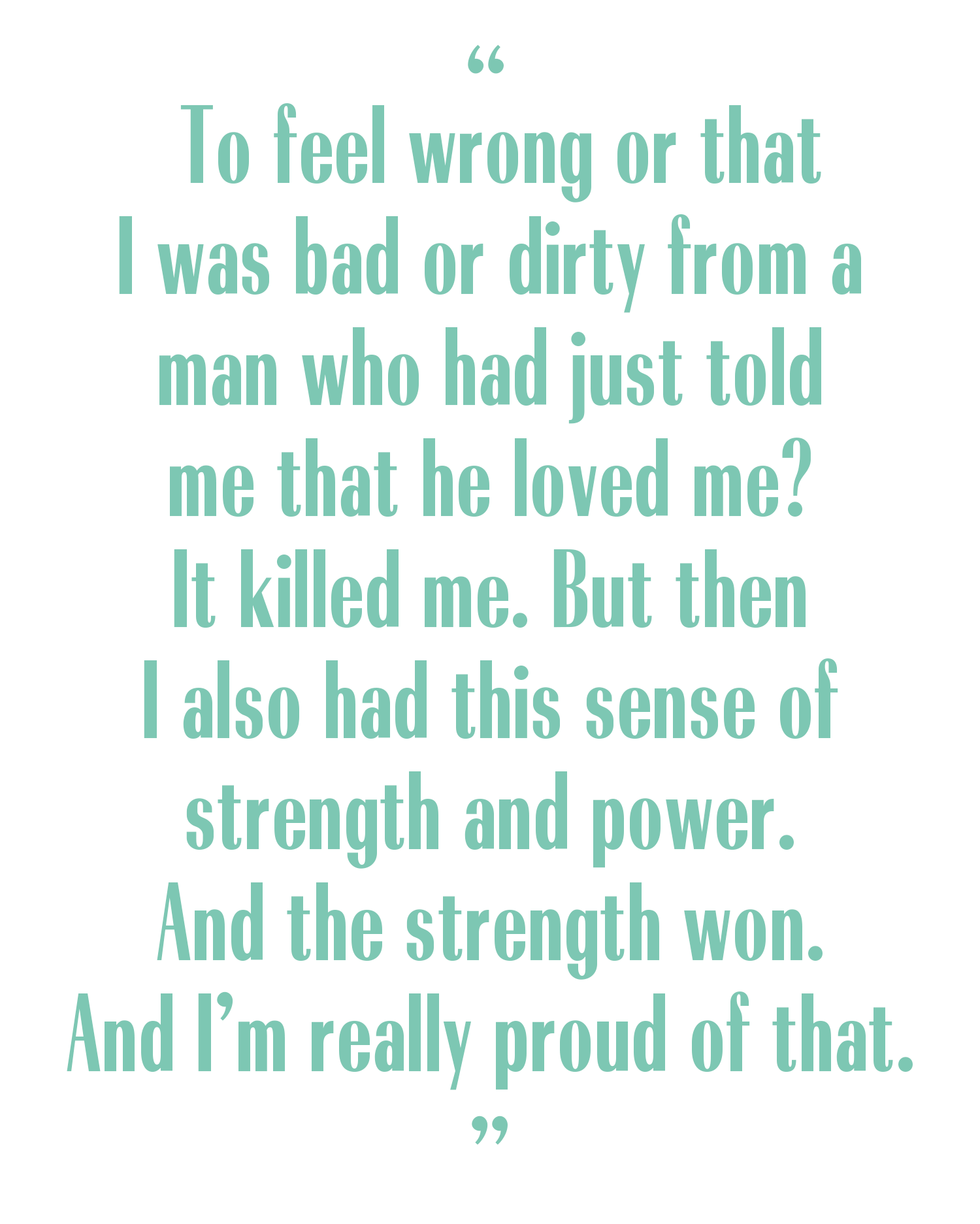
Still, Brown had her guard up. “I hated when the guys were like, ‘I was so excited when I found out it was you’ or ‘I wanted it to be you.’ Bullshit.”
But then there was Parker. The born-again virgin from Georgia with sharp suits and sharper abs. The two connected over their shared Christian faith, speaking scripture to each other in a way that seemed to outsiders like its own language. “He had a hold on me. The first night, he said all the right things,” she recalls. “He made me feel like, Okay, somebody is here actually for me. It’s kinda sad when I think about it, that I was like, Okay, I’ve got one.”
The feeling stayed with Brown throughout the season, even as Parker lied and yelled and manipulated. Even as the audience tired of his antics and became triggered by his toxic masculinity. “[The producers] often get credit for something like Luke and keeping him around, but it was actually the contrary,” Harrison tells me. “We felt there was going to be some Luke fatigue and would have rather him go home earlier. But the problem was, Hannah really liked the guy.”
Their connection was undeniable. “I didn’t need anybody to show me the red flags. I was seeing them,” says Brown of the other contestants’ repeated warnings about Parker. “It wasn’t even that I was ignoring them; I was trying to weigh them,” because she felt something deep. Then came the moment that would be a turning point in Brown’s season and therefore her career, possibly even her life: the moment that Parker judged her for her sexual past—and she kicked him out of her future.
Parker’s show of moral superiority wasn’t the first time Brown had been made to feel small by a man. Before The Bachelor, Brown had two serious long-term relationships. She lost her virginity to the first, a man we’ll call B, a man who grew up seven minutes down the road, who led to her staying in Tuscaloosa for college, who was her presumed future husband. But they broke up after four years together, and she started dating another man, T. They, too, slept together. After a year and a half of dating, Brown realized she still loved B. She went back to him, but what he told her “crippled her”: Because Brown had slept with another man, B could no longer see her as his wife.
So when Parker uttered those now-infamous words—“Let’s talk about sex”—it struck a nerve in Brown that went right to her soul. “To feel wrong or that I was bad or dirty from a man who had just told me that he loved me? It killed me. And then made me mad. But also it killed me because it put me back in a place,” she says. “But then I also had this sense of strength and power. And the strength won. And I’m really proud of that.”
As Nixon, the English professor, was watching Brown and Parker’s altercation, she was reminded of Tess of the d’Urbervilles, the novel written by Thomas Hardy in 1891. For those who haven’t read it, the 592-page book can, for the purposes of this article, be summarized thusly: A young man confesses to his new love that he is not a virgin but is reformed; she confesses the same in excitement that this makes them equals and they can start fresh together. Except… he’s actually not cool with that and abandons her. Tess, ahead of her time, writes him a letter excoriating him for his double standard. I won’t spoil the book for you, but it ends badly—worse than Brown’s outcome. And yet, the parallels are there. Nixon decided she had to use The Bachelorette to teach her students that, although the novels of the Victorian era may have been written in the 19th century, the concepts are painfully relevant in 2019.
“It’s nice to look at the Victorians and think, Oh, those silly oppressive people who didn’t like women! But we have not moved past that in the way we would like to think,” Nixon says. “My students, typically, want to believe the work of feminism is done. Yet Hannah is being asked to account for her virginity to a man. And her response makes it clear that, no, [the work] is not done, and you all need to be speaking up like this.”
When Brown told Parker, “I have had sex and Jesus still loves me,” America erupted. On the night that episode aired, #TheBachelorette was trending. Brown was called the most feminist Bachelorette the franchise has ever seen, who gave jaded viewers new faith in the show. She was applauded for shutting down slut shaming and giving lessons on demanding respect. New York Times best–selling author Jodi Picoult even weighed in, saying, “So, @AlabamaHannah standing up for women and their sexuality is probably the best speech in the history of #TheBachelorette, given that she comes from a part of the country where women’s reproductive rights are under attack and women seeking abortions are wrongfully painted as whores.”
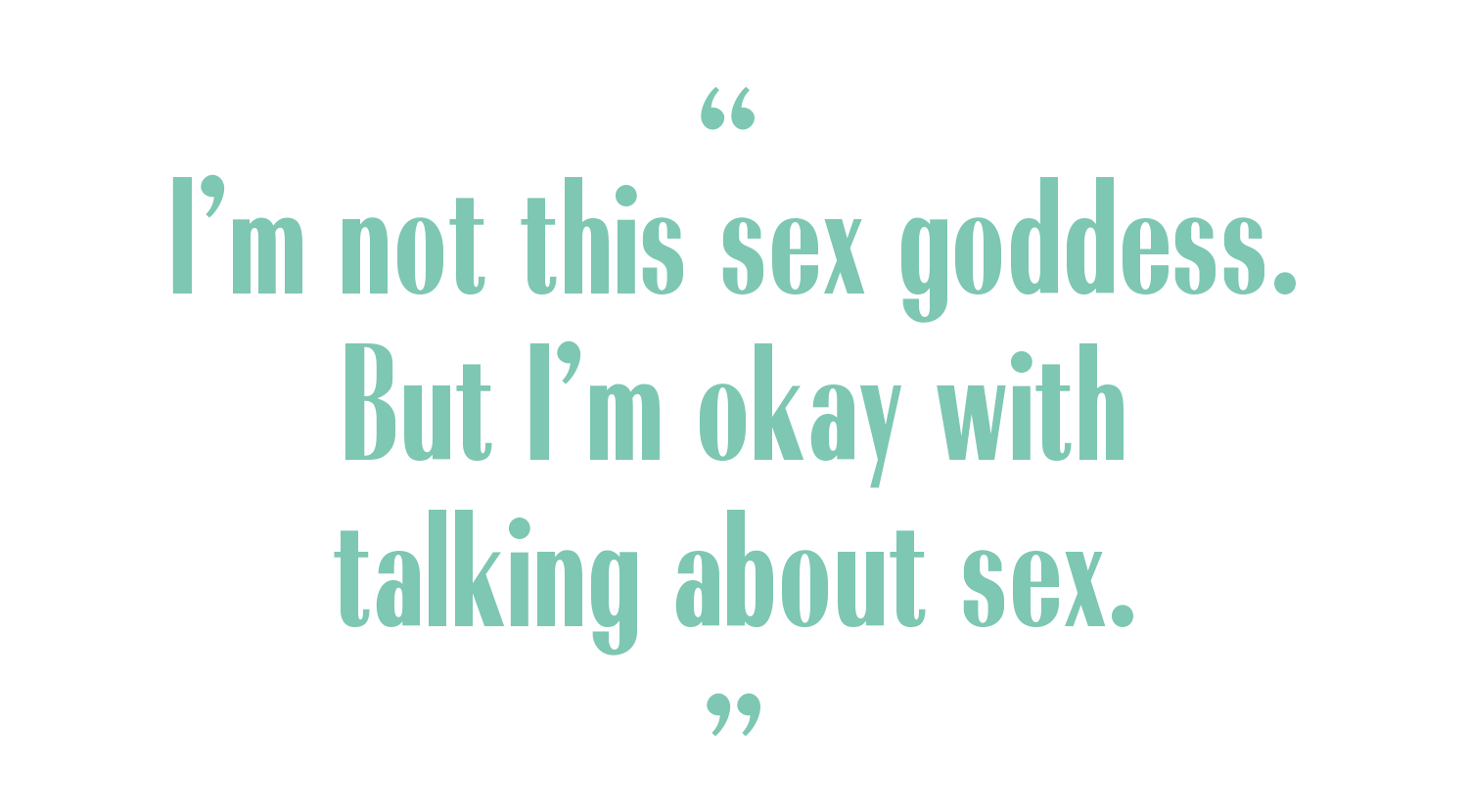
In that instant, Brown became an avatar for American women, the manifestation of millions of buried abuses and offenses finally resurrected. “So many people have gone through the same things I have, maybe on different scales, maybe not on national television, but they have felt those same feelings of shame and guilt from our society that you’re dirty or not enough or that it’s wrong,” says Brown. “And to see somebody stand up to someone like Luke, who represents a lot of people in our culture, was something that maybe a lot of people wish they could have done or wanted to celebrate.”
The euphoria wasn’t as palpable in certain corners of the internet (and country). Back home in Alabama, Brown heard the whisperings and gossip around her, saw what supposed friends shared on social media: that she gave Christians a bad name, that she spread her legs for anyone. “I’d never been called a slut in my life,” Brown says. Rather than allow society to make her feel inferior, she turned the mirror back on society. “So then I’m like, Okay, why do we call people sluts?” She wonders how being honest about having sex could possibly be an indicator of someone’s relationship with God. “I try to live my life in a way that honors [Him], but also sometimes human desire wins out. That doesn't make me any less of a Christian.”
The hypocrisy of the whole thing is laughable. Self-proclaimed Christians declaring that women who act like Brown—who have sex before marriage—are going to hell, that by saying the things she said on television, she’s “the reason for the fall of mankind”? Let he who is without sin cast the first stone, amirite?
“It really sucks because I had a lot of people looking at me, people who might’ve been interested in following the Lord,” Brown says, “who looked at the things that people were saying on my pages [and realizing], If that’s Christianity, then I don’t want to be a part of it.”
I ask her if the purity culture promulgated by the Christian church is problematic. Does the church need to embrace a more modern way of thinking? She believes there is an issue with purity culture but argues that “it’s not about adapting and moving forward. It’s about going back to the basics.” As she puts it: “The basis of Christianity is loving people and not judgment.”
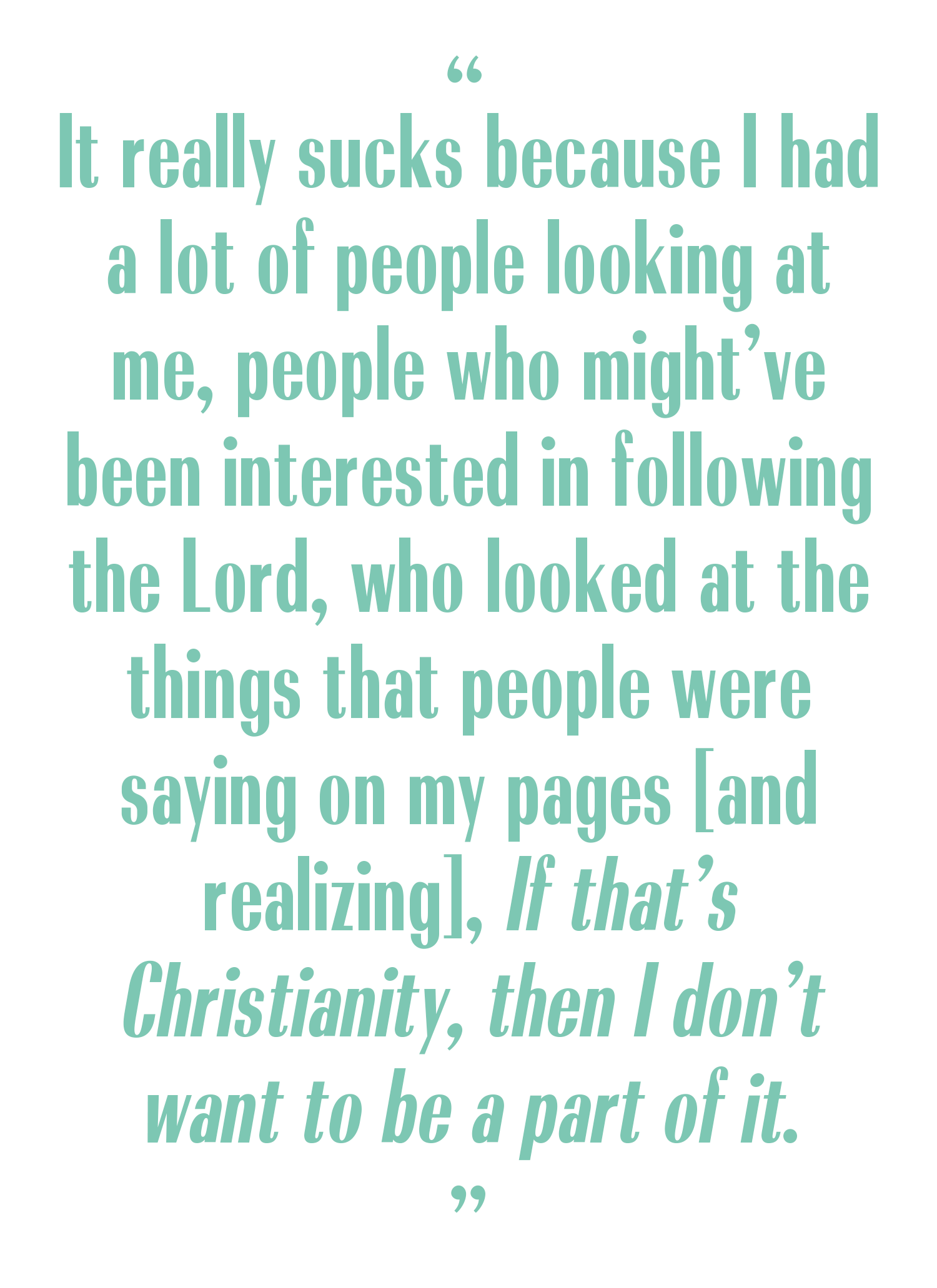
Brown still believes that sex is a special, intimate act, and the value that she puts on it is immense. “I think the reason that the Lord asks us to wait is…for protection,” she explains. Brown says that she experienced a lot of hurt because she had sex before she was ready. “I loved the guy, but I do think I felt a lot of pressure,” she says.
The bottom line: “Whatever has happened in your past when it comes to sex does not…You should never feel any shame about that,” she says. “Just because everybody knows that I’ve had sex in a windmill does not mean that the value of the love that I’m going to have later on in life is going to be any less.” The same is true for women who are celibate. “Hey, it’s okay if you want to have sex. Hey, it’s okay if you don't. But it doesn’t make you any less or more of a person, regardless.”
In The Bachelor/ette’s 38-combined-season run, Brown’s candor about sex was something of a first for the family-friendly ABC franchise. “I’m not this sex goddess. But I’m okay with talking about sex,” says Brown. In past seasons, references to sex have typically been alluded to but not boldly proclaimed. And previous leads who have admitted to being intimate with one or more contestants have been met with vitriol and none of the you-go-girl support that Brown received.
Certainly the franchise’s audience (5.7 million people, on average, this season) includes people with, we’ll call them, traditional values. But there are enough demanding more openness and social change that a season like Hannah’s can even air. “As a producer, it’s being willing to embrace [issues like toxic masculinity and consent] and willing to show them,” says Harrison. “Maybe we wouldn’t have done that 18 years ago.” He reconsiders. “We definitely wouldn’t have.”
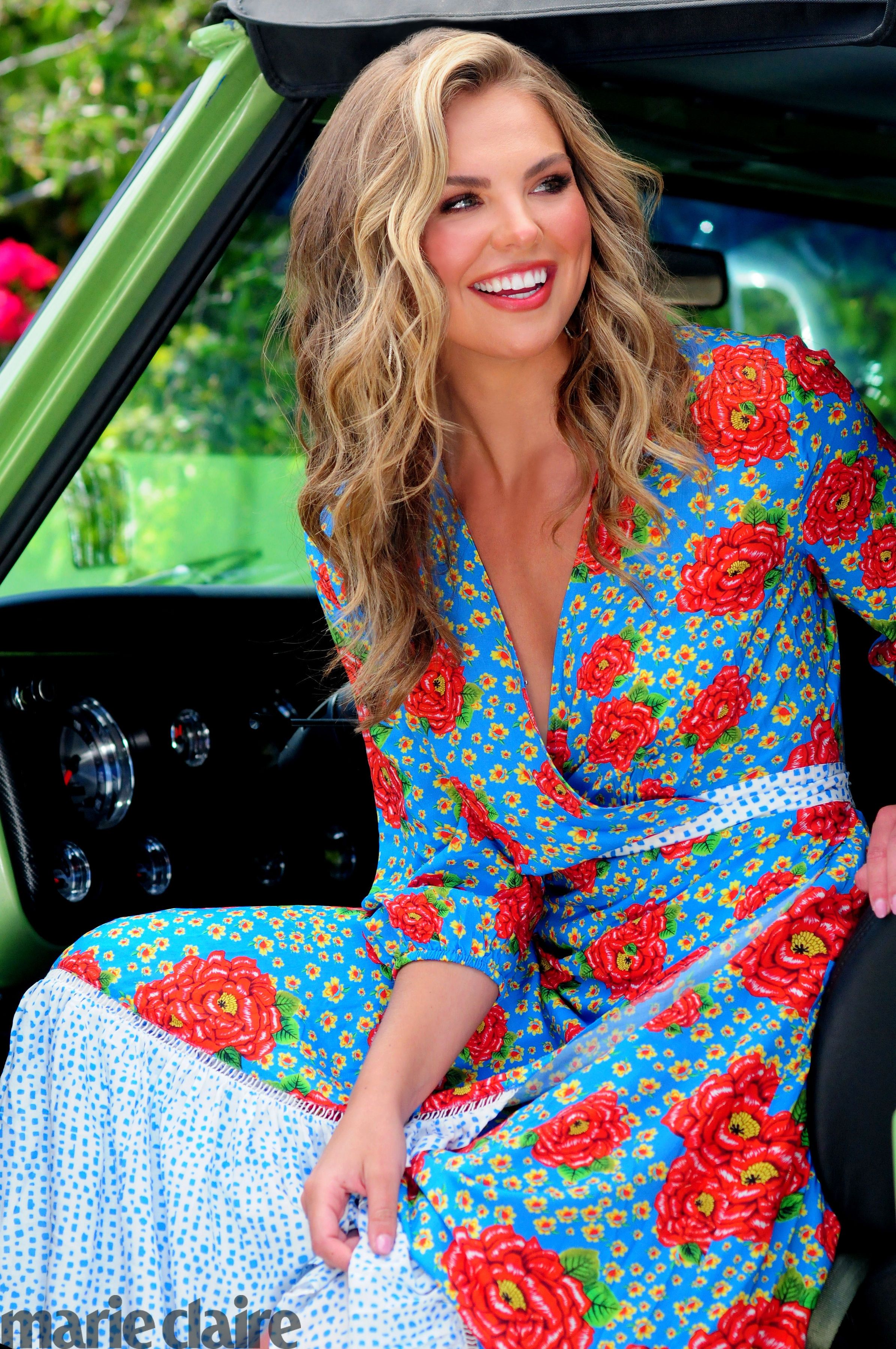
“I’ve seen a progression for sure,” Harrison says of the audience response to taboo subjects. “Does that mean [society] has changed? No. There’s always going to be the dissenter. But I love the way that our show has gently evolved a lot more of these conversations into the mainstream.” Harrison references the recent same-sex storyline on Bachelor in Paradise. “I’m not so naive as to think people are going to say, ‘Oh, great! Love is love! We’re all on board! Finally, The Bachelor showed us that.’ No. It takes a long time to turn around a big ship. I’m glad that we’re a part of it, that we’re forcing these conversations to be had.”
One half of the same-sex relationship Harrison is talking about is Brown’s friend Demi. Brown was raised in a church, a community, that did not support homosexuality. “I was told it was a sin,” she says frankly. Although the area of Alabama she grew up in was no more liberal than any other red-state town, Brown says she was often around people in same-sex relationships because many LGBTQ+ people attended the cosmetology schools her parents own.
“I've always kind of like questioned, like, what do I believe about it? Now that I’m older and have true friends that have these relationships, I feel like…I know that I’m called to love. And I love my girl Demi, and I want her happiness, and I don’t want her to ever feel like she can’t be who she is.”
What about Brown’s own happiness? It’s a fact (an irrational one, but a fact nonetheless) that society puts a premium on being engaged, something she isn’t any longer. “For a year, the only focus that I had was finding a spouse, and then I don’t have one? I was just crushed,” she says. She wasn’t missing Wyatt, whose name Brown mentions just five times in our four hours together and who she “can’t even remember loving at this point because it was just so”—she waves her hand—“pfft.” Over. But she wondered what mistakes she might have made in other relationships, who she might have let go.
Certainly scores of fans are dying for Brown to find love again. Rumors are already flying that she’s romantically involved with Bersten, her DWTS partner. (I’ll say this: The rapport that I observed between Brown and Bersten was fraternal, not flirtatious.)
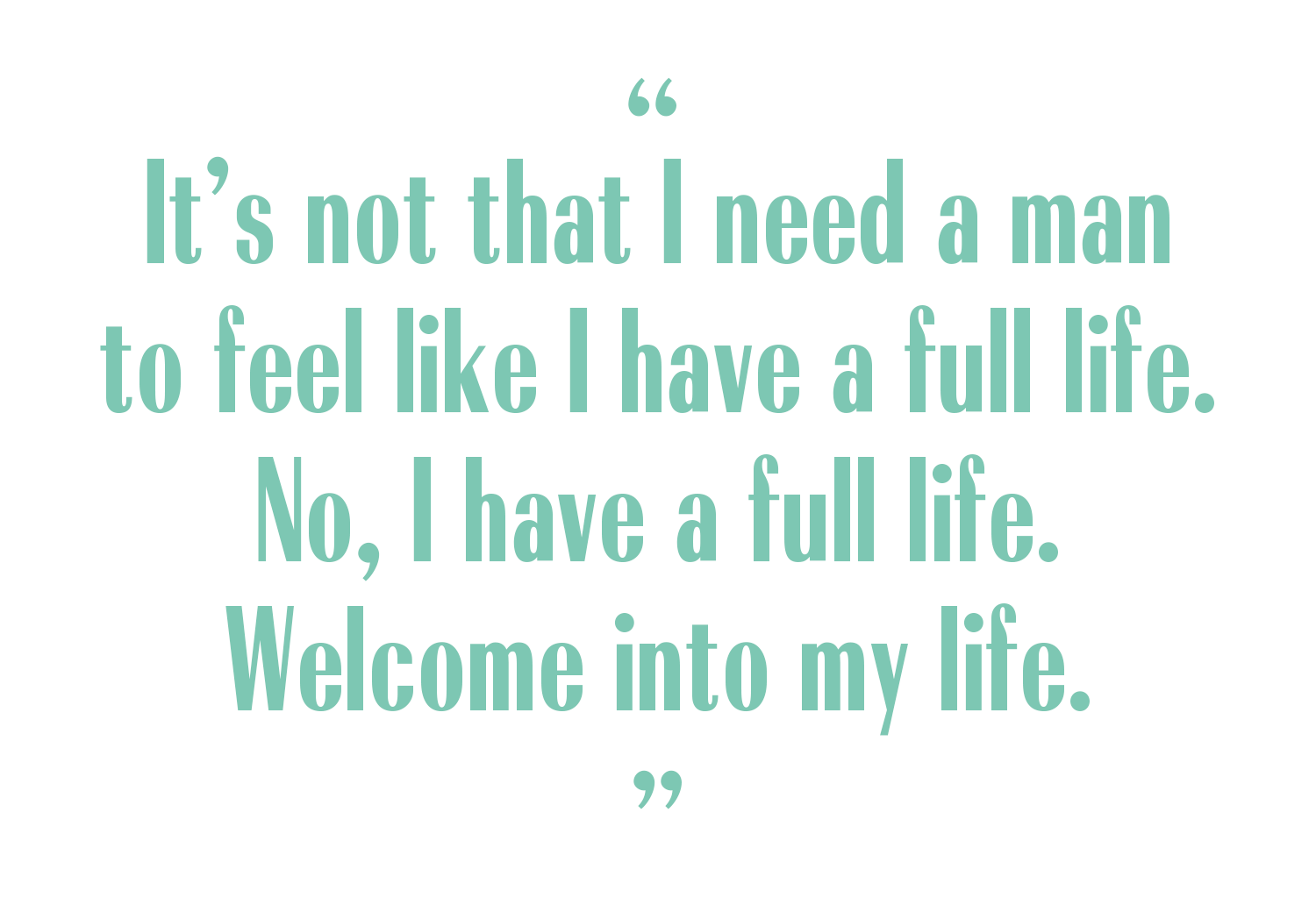
For now, Singledom is a place Brown is perfectly happy residing. “I will not settle,” she says firmly. “It doesn’t matter how lonely it might feel on a Saturday night by myself when I see my friends posting pictures with their husbands or out with the guy they’re dating. I don’t care. I would rather protect this.” She taps her chest.
It’s not that being the Bachelorette, going through Luke’s judgment and Jed’s lying, has turned her into a cynic. She still believes that love is the closest thing human beings have to magic. And she still wants a husband. It’s just that, as she said on the After the Final Rose special, she realizes now that she doesn’t need one.
“I am totally okay on my own,” Brown tells me. “I don’t want to have to have a man to feel whole. It’s not that I need that to feel like I have a full life. No, I have a full life. Welcome into my life.”
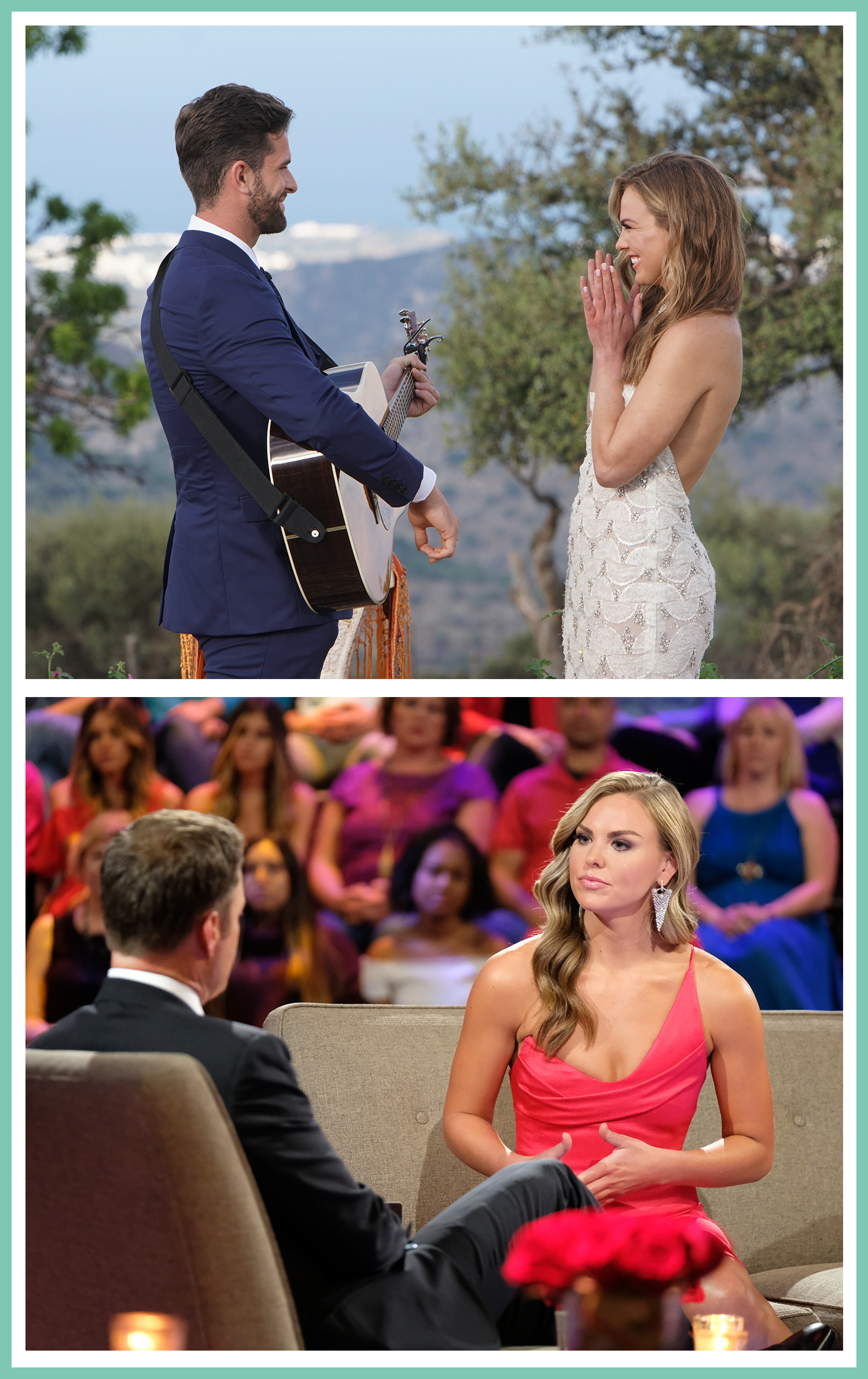
Top: Wyatt proposing to Brown; Bottom: Brown explaining to Chris Harrison her decision to call off her engagement.
Part of that full life is Brown’s renewed passion for professional pursuits. Being a career woman was not always her end goal. “[When I was younger,] I started conforming to the people around me, like... Oh, I’ll work for a little while, and then I’ll just marry somebody that has a good job.” But when things didn’t work out with Wyatt, she reassessed her priorities. “There was a time in my life that I settled. Like, I’ve always been intelligent, I’ve always been a very hard worker. I’m totally going back to who I was always supposed to be.”
She says it bothered her when, during the last week of her season, her father questioned Wyatt’s ability to provide for her. Not because it was a slight to Wyatt. Because it was a slight to her. “Of course I want somebody who is driven. Also, I want somebody who’s passionate. And it doesn’t matter, because if I love them, I love them, because I’m gonna be fine [financially],” she says, sitting up straighter, almost defiantly.
Brown plans to support herself with a career in TV. As a kid, she watched Good Morning America before school and Ellen and Oprah when she got home. She started college with aspirations of being a broadcast journalist but says she got discouraged by people who told her that job came with low pay and too much time away from family. Now she realizes what it will actually bring her is joy.
“There would be moments when I’d be crying in my bed, like, Why did this thing not work out? And now I’m so glad it didn’t work out. I’m so glad that the things that broke my heart in the past [did], because it’s made me think, No, I can be a go-getter.” Brown knows that some people may not take her seriously because she got her start on reality TV. It’s another insecurity she’s tackling. “I will never pretend like I did not come from Bachelor Nation. But you better bet,” she stretches out the word, “that now, you’re gonna see me work.”
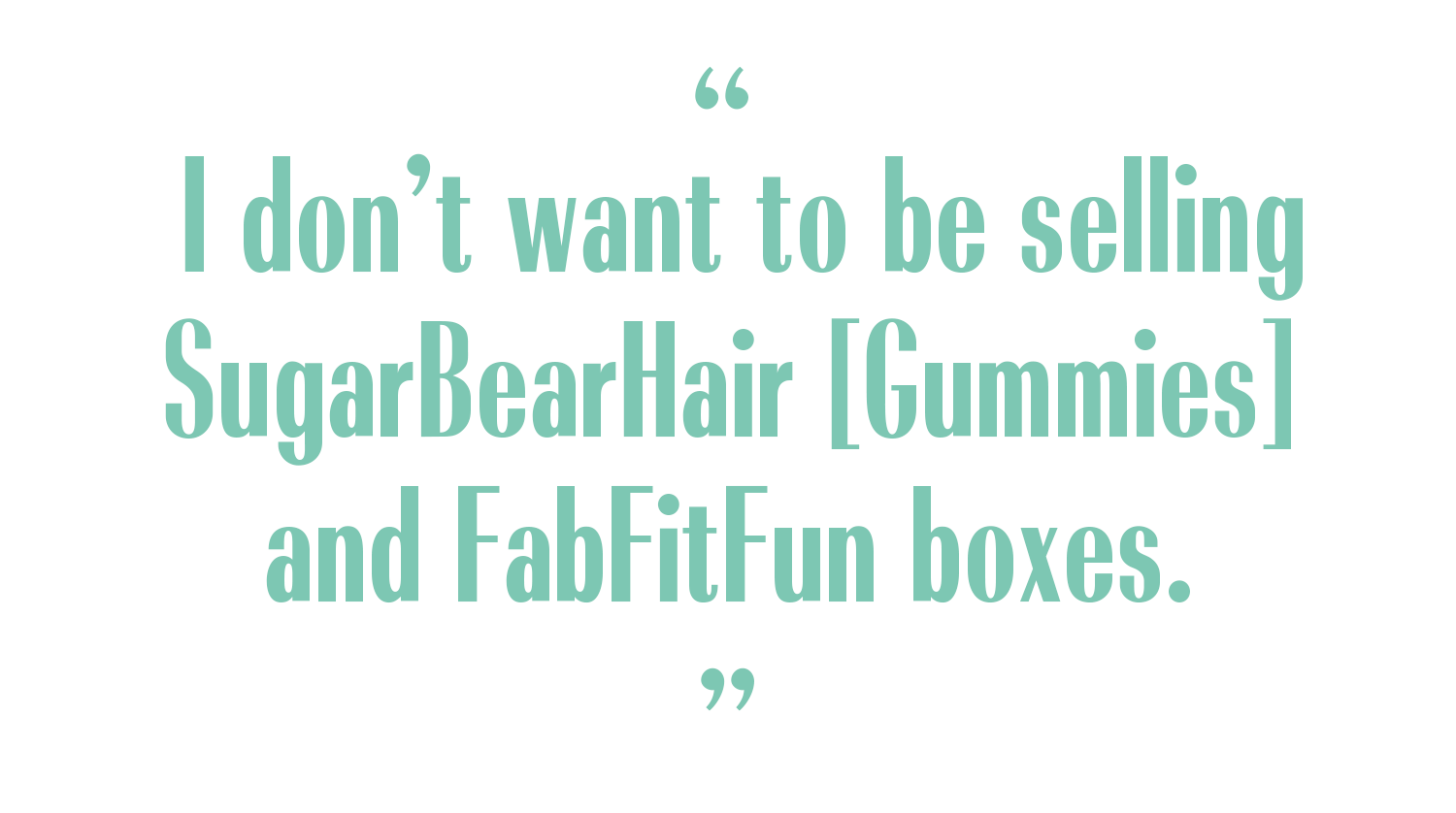
On September 1, she hosted ABC’s fall preview special alongside Donald Faison, and she guest-hosted Entertainment Tonight on September 17. As for what’s next? Brown is looking to Lauren Conrad, Chrissy Teigen, and Reese Witherspoon as career role models. She wants to write a children’s book about being comfortable with who you are, and have a home decor line. She wants to “wear all the hats.” For now, though, “it’s just figuring out the right fit,” Brown says. “I don’t want to be selling SugarBearHair [Gummies] and FabFitFun boxes,” two products commonly hawked by influencers.
“A lot of these people [from Bachelor Nation] make a lot of money really fast. It’s been sickening how much money I’ve passed up…because I’m not doing the low-hanging fruit.” Money that she needs. Before Brown signed on for The Bachelorette, she had $70 in her bank account. She had quit her interior-design job to serve out her reign as Miss Alabama USA (a pageant that she won, she believes, because she “wasn’t expecting anything”) and go on The Bachelor. Now, she’s hired an accountant and is working on building good credit. “I still need to hustle and make some money, but I’m doing a lot better than $70.”
I have a feeling she’ll continue on that trajectory. Her enneagram is a 3 wing 4, she tells me, which according to The Enneagram Institute makes her a “success-oriented, pragmatic type: adaptable, excelling, driven, and image-conscious.” She has lofty goals but is also self-aware. She is competitive but champions her DWTS costars too (especially James Van Der Beek, whom she is often in the studio with and who she says is “like a really nice dad that’s also really good-looking”). She’s assiduous, rehearsing for far longer than the scheduled four-hour blocks. It’s working. The first week, Brown and Bersten scored a 20 out of a possible 30. The second week, they were awarded all 8s, the highest score of the evening.
“I have no doubt that no matter if she’s hurting, sick, or whatever, she’s going to perform on Dancing because she did for us,” says Harrison. “Talk about success in life. People who show up when they’re needed most, when the moment calls for it—those people are successful.”
Success for Brown may look like winning the Mirrorball. It may look like being a published author and role model for young girls. It may look like having her own TV show, or line of home goods, or a husband.
But it will also, certainly, look like this: being completely, unapologetically herself, whoever that turns out to be. And we get to watch it all play out.

For more stories like this, including celebrity news, beauty and fashion advice, savvy political commentary, and fascinating features, sign up for the Marie Claire newsletter.
Related Stories
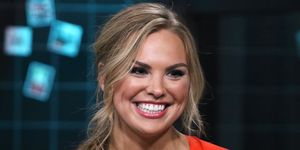
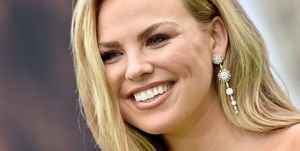

Danielle McNally is a National Magazine Award–winning journalist. She is the executive editor of Marie Claire, overseeing features across every topic of importance to the MC reader: beauty, fashion, politics, culture, career, women's health, and more. She has previously written for Cosmopolitan, DETAILS, SHAPE, and Food Network Magazine.
-
 Tyla's Coachella Outfit Pairs Dolce & Gabbana With Pandora
Tyla's Coachella Outfit Pairs Dolce & Gabbana With PandoraThe singer wore a gold version of the crystal bra made famous by Aaliyah.
By Amy Mackelden Published
-
 How Kate Middleton Is Influencing George's Fashion Choices
How Kate Middleton Is Influencing George's Fashion ChoicesThe future king's smart blazer is straight out of Princess Kate's style playbook.
By Amy Mackelden Published
-
 King Charles "Couldn't" Meet Prince Harry During U.K. Visit
King Charles "Couldn't" Meet Prince Harry During U.K. Visit"It could actually bring down a court case."
By Amy Mackelden Published
-
 Eva Mendes and Ryan Gosling Introduce the "Newest Member" of Their Family
Eva Mendes and Ryan Gosling Introduce the "Newest Member" of Their Family"I'm crazy about her and excited to share life."
By Amy Mackelden Published
-
 Jennifer Garner Is Reportedly Ready to Cut Ties With Jennifer Lopez, Unless Their Kids Are Involved
Jennifer Garner Is Reportedly Ready to Cut Ties With Jennifer Lopez, Unless Their Kids Are Involved"Her friends feel she shouldn't have allowed herself to get so involved."
By Amy Mackelden Published
-
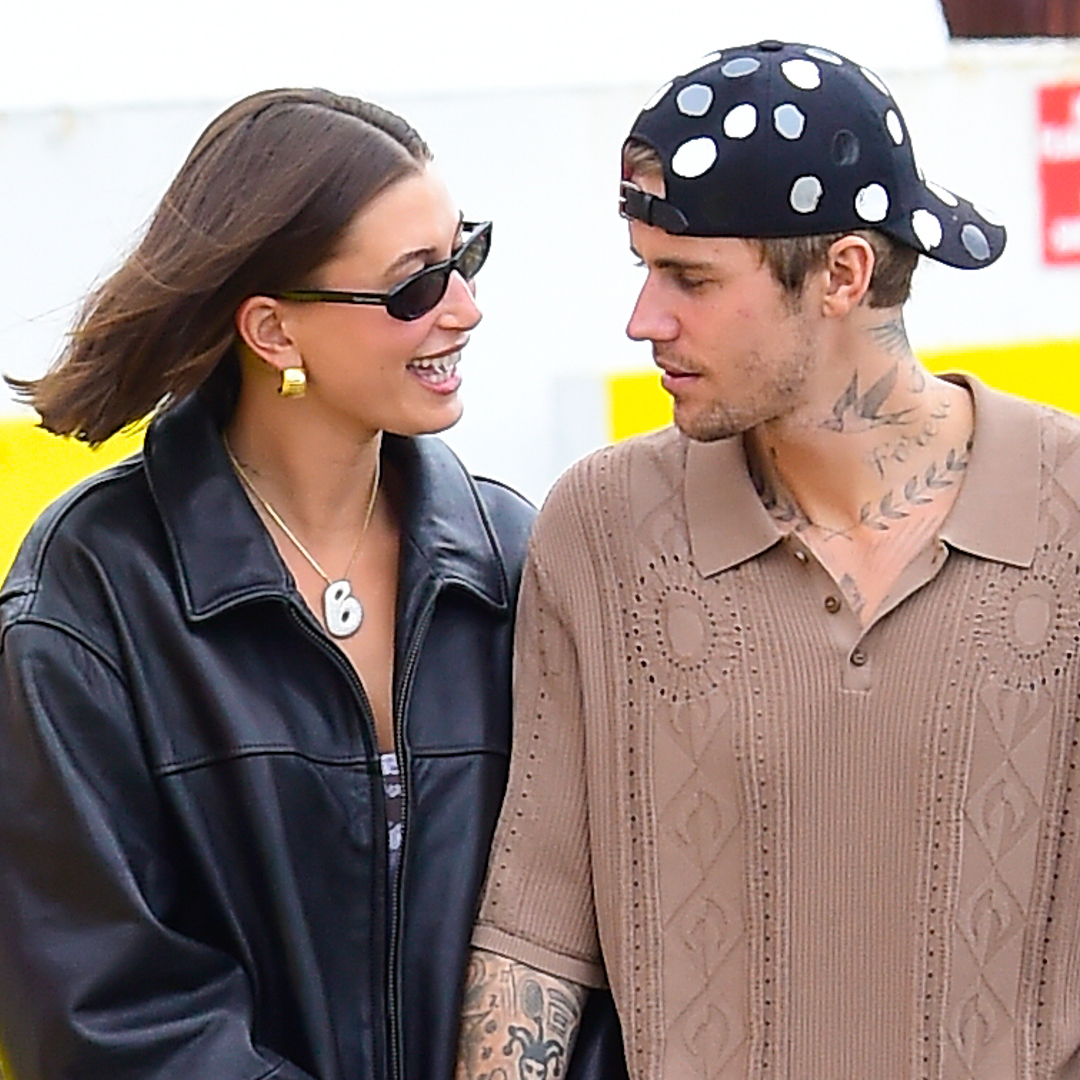 Hailey Bieber Shares Her First Photo of Baby Son Jack Blues Since Giving Birth—See the Sweet Shot
Hailey Bieber Shares Her First Photo of Baby Son Jack Blues Since Giving Birth—See the Sweet ShotSo freaking cute.
By Quinci LeGardye Published
-
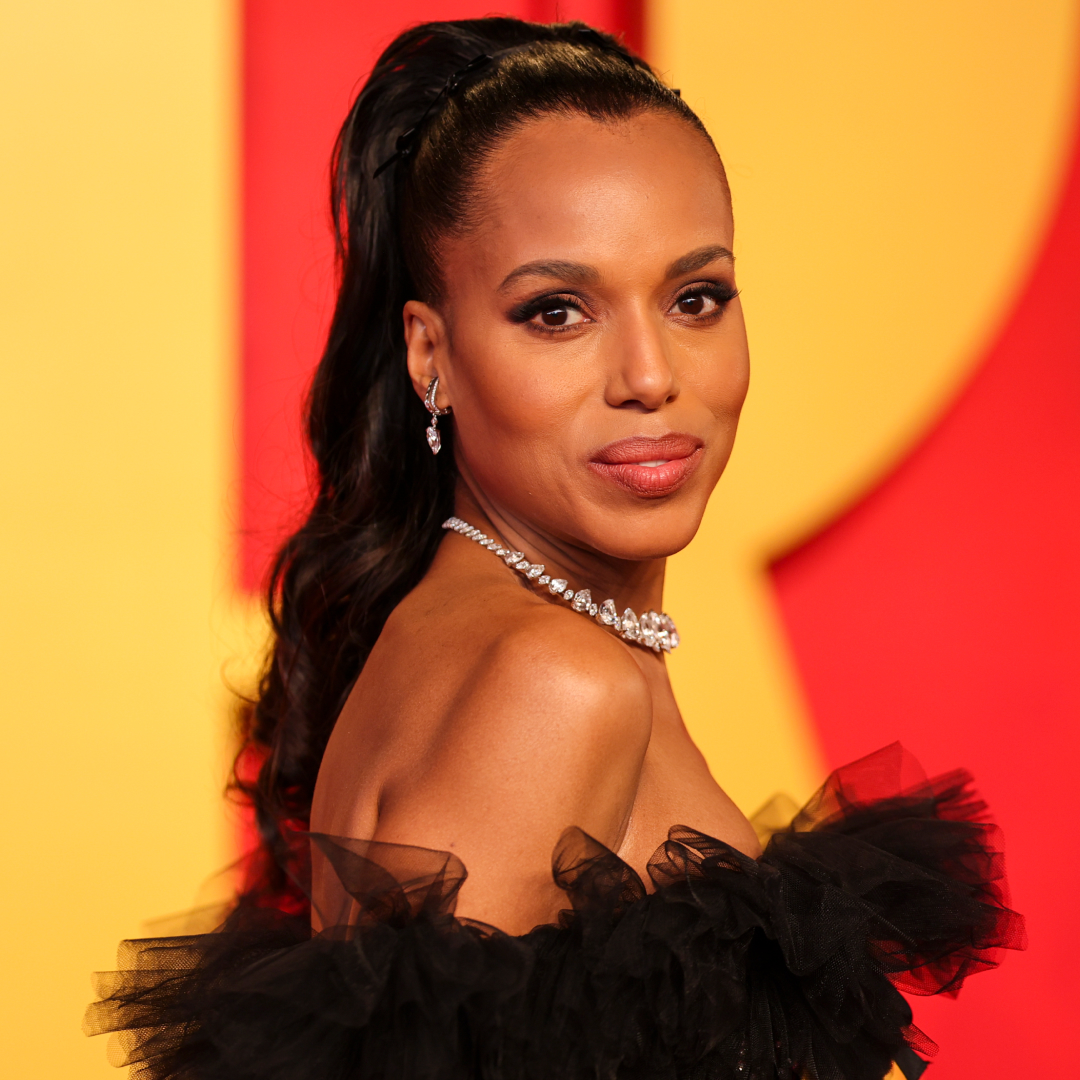 Actors Who Are Nothing Like Their Most Iconic Characters
Actors Who Are Nothing Like Their Most Iconic CharactersTalk about awards-worthy, transformative performances.
By Katherine J. Igoe Published
-
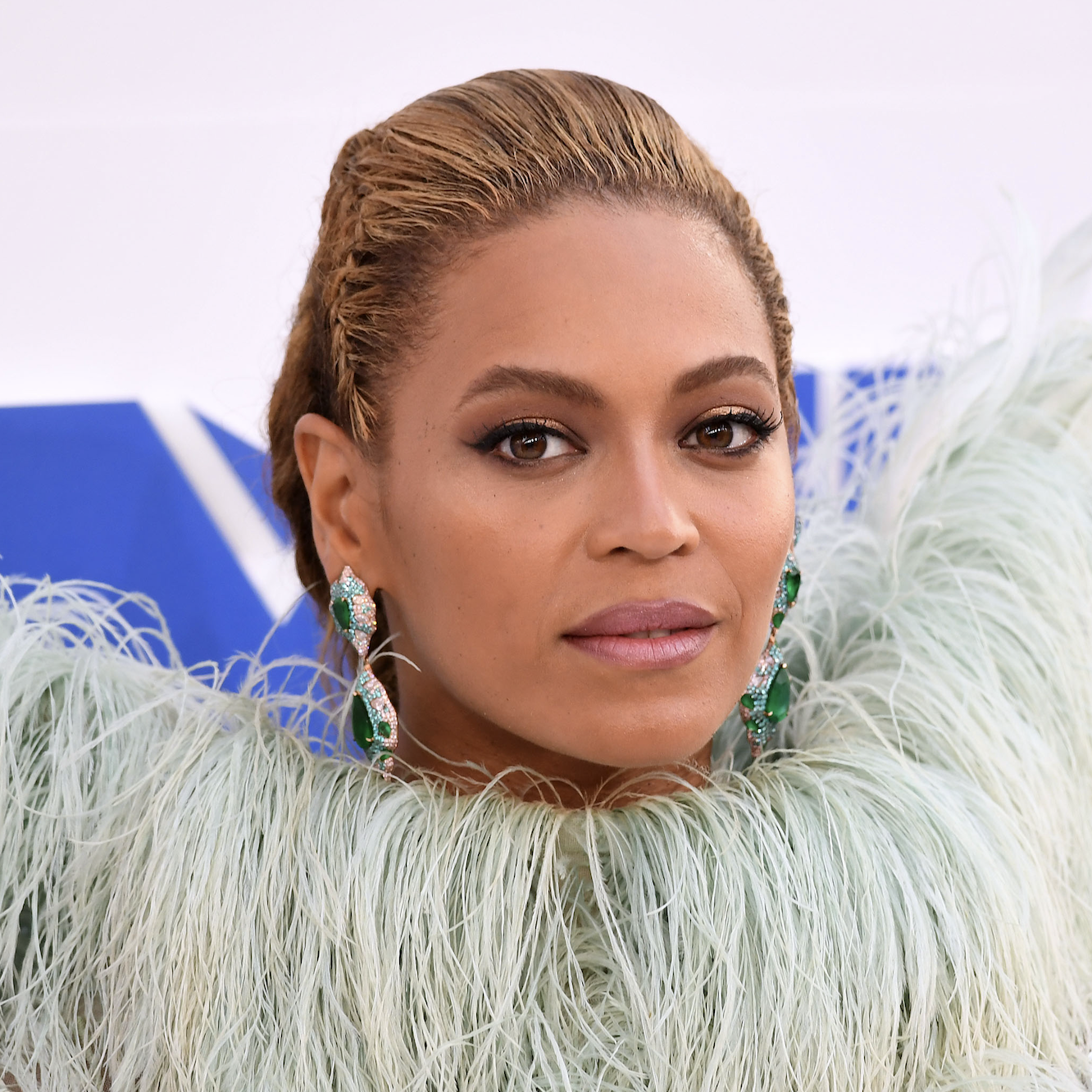 The Question on Everyone's Lips: Did Beyoncé Skip the 2024 MTV VMAs?
The Question on Everyone's Lips: Did Beyoncé Skip the 2024 MTV VMAs?It's been a few years since she last graced the carpet with her presence.
By Kelsey Stiegman Published
-
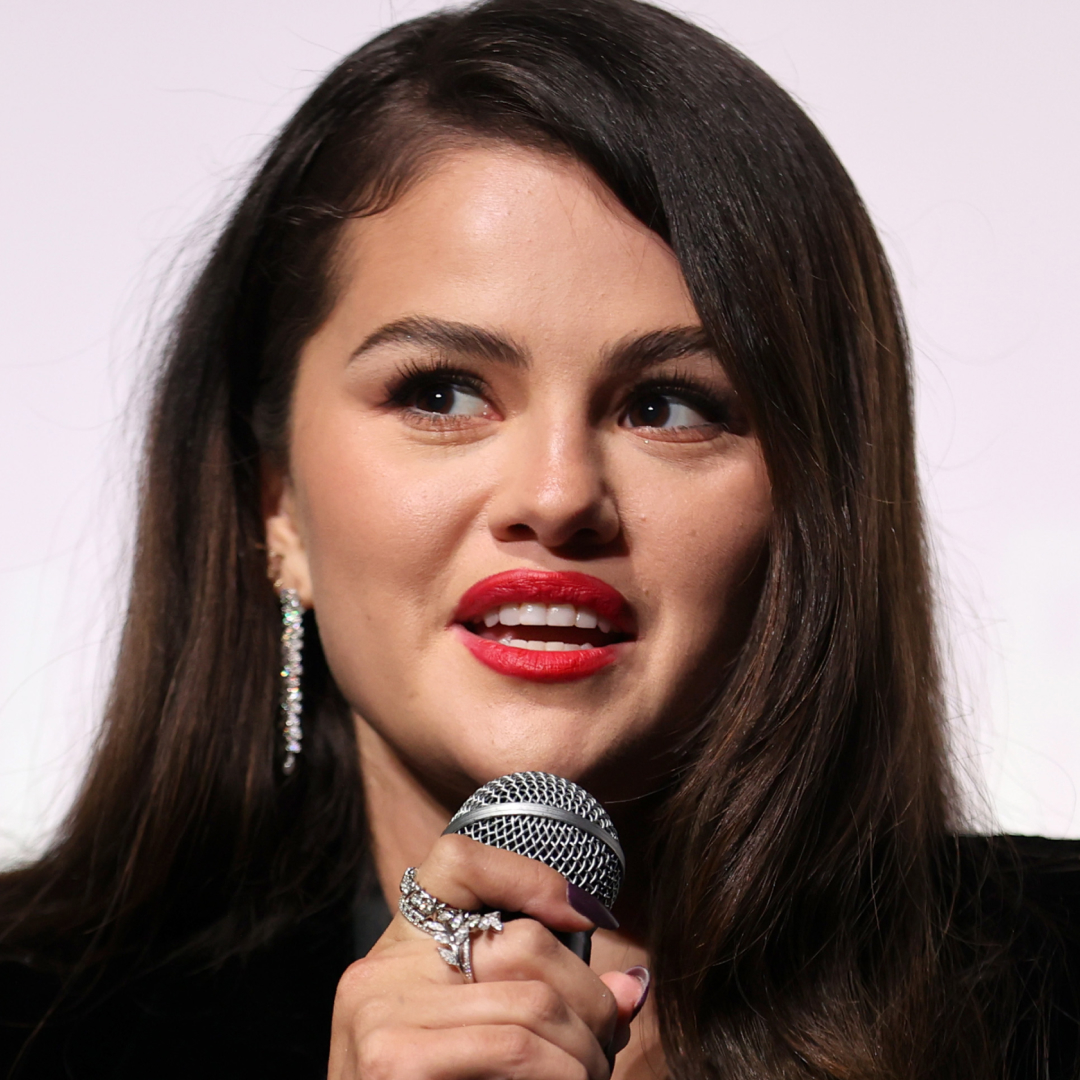 Why Isn't Selena Gomez at the 2024 VMAs?
Why Isn't Selena Gomez at the 2024 VMAs?Her absence became even more noticeable after her bestie Taylor Swift showed up.
By Hanna Lustig Published
-
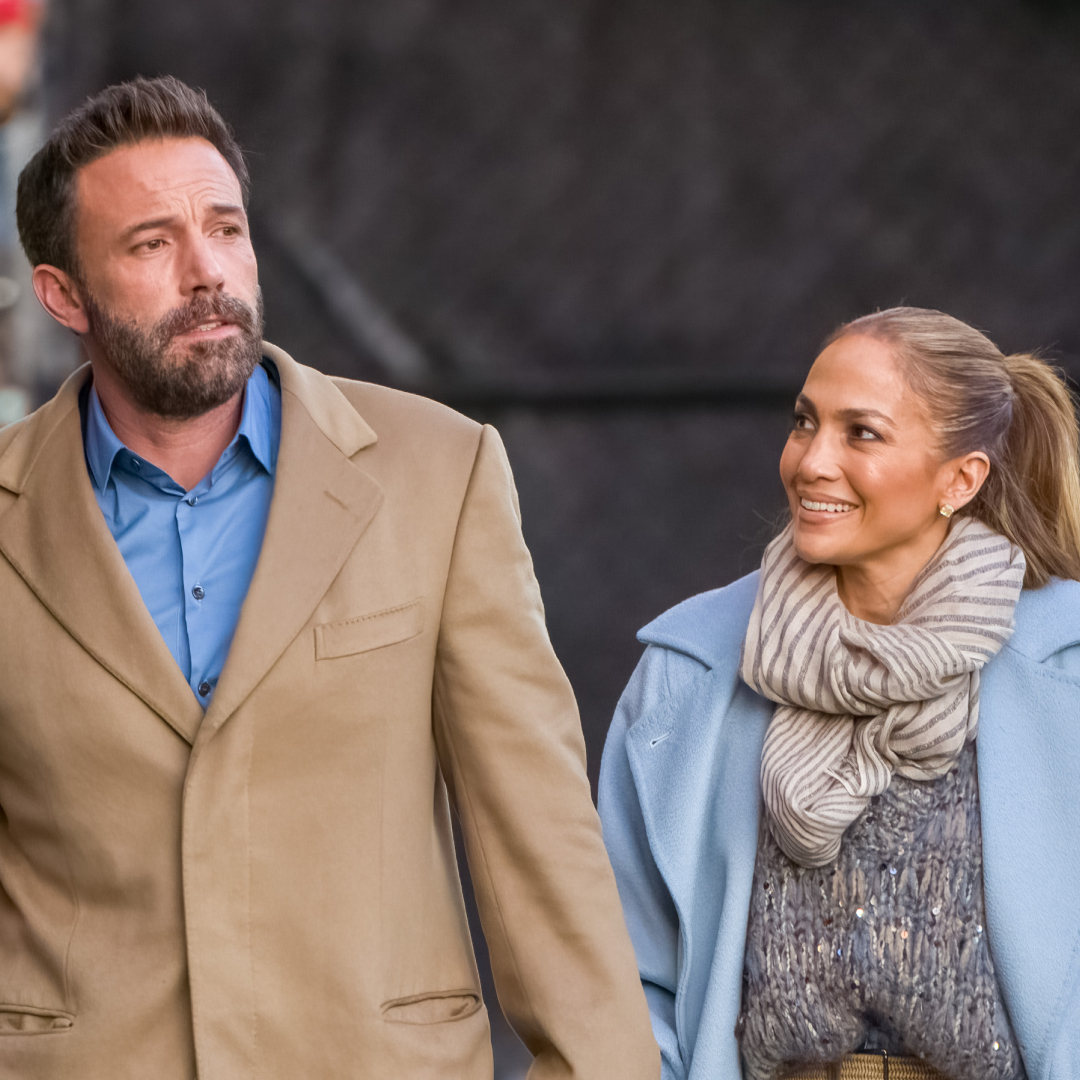 Jennifer Lopez Thought Ben Affleck Was a "Changed Man" But Being Married to Him Was "Impossible"
Jennifer Lopez Thought Ben Affleck Was a "Changed Man" But Being Married to Him Was "Impossible""Friends think he is selfish, sullen, impossible to please most of the time and negative."
By Amy Mackelden Published
-
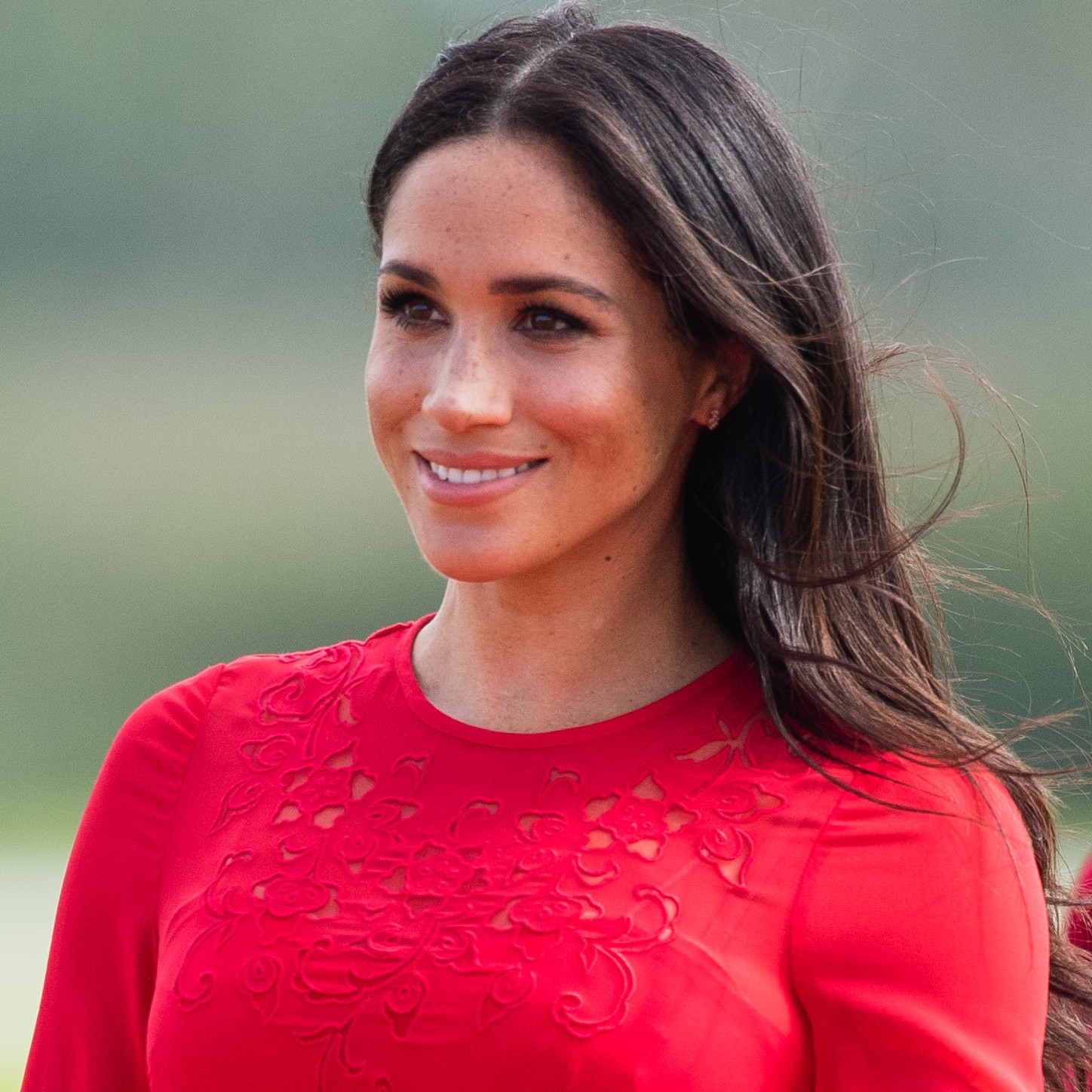 Before Meeting Prince Harry, Meghan Markle \201cSeriously Considered Applying\201d to Be on This Reality Dating Show
Before Meeting Prince Harry, Meghan Markle \201cSeriously Considered Applying\201d to Be on This Reality Dating ShowIt has become obvious this week that Meghan is a reality television aficionado.
By Rachel Burchfield Published
